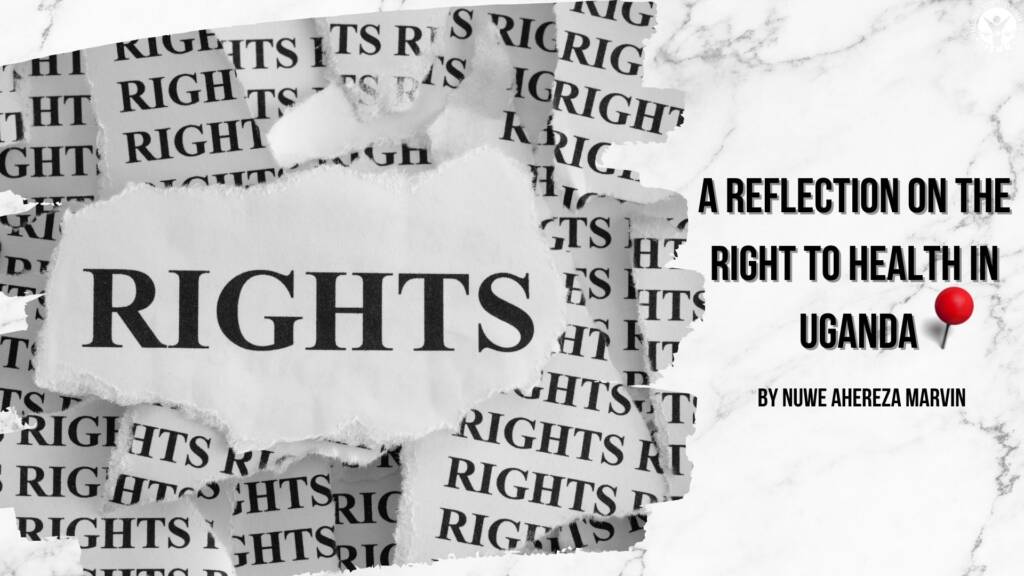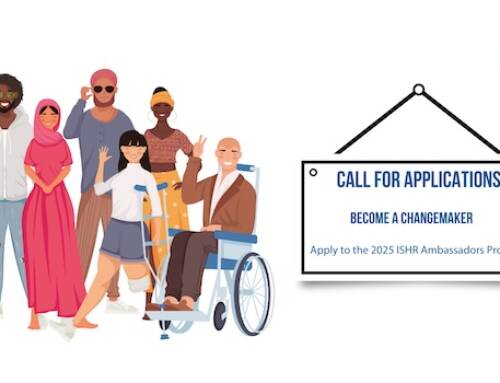Uganda


A reflection on the Right to Health in Uganda
On 6th June, I was on my way to meet my research supervisor and in all sincerity, I was feeling late for I had only 30 minutes to get there. I ordered a boda boda and upon its arrival, I wanted the rider to drift swiftly to my destination. However, a few minutes into the journey, the rider threw me into deep thought. He brought me into his world when he said in Luganda, “Nina ebizibu, netagayo emitwalo kumi nfunile omwana wange obujanjabi” This in English is loosely translated as, I have problems, I need 100,000 for my child to be given medicine. Our conversation grew and I found out that his child had kidney issues and was admitted at Mulago National Referral hospital, I also find out that he had managed to pay 750,000 Uganda shillings (approximately 184 Euros) and was only left with 100,000Ugx (approximately 25 Euros) for the final amount of the medicine. He also told me that his child is in need of dialysis. All this weighed on him mentally and emotionally. At that point, I abandoned my idea of requesting him to ride faster for all his thoughts were not even at that place in the moment. This got me thinking a number of questions; is medication free at Mulago national referral hospital, if not why is it then a national referral hospital, is the right to health in Uganda alive?
Mulago national referral hospital is a government medical facility founded in 1913 as a centre for treatment of sexually transmitted diseases. It has grown to be Uganda’s only national referral hospital offering a wide array of medical services. The hospital is thus administered by the government of Uganda although certain services under the hospital are managed and administered privately.
In the context of an ordinary Ugandan, the constitution of the Uganda guarantees them the right to health. The right to health is provided for under directive various national objectives and directive principles of state policy which under article 8A can be used in interpretation of the constitution namely, objective XIV on social and economic objectives, Objective XX on the state’s duty to ensure the provision of basic medical services to the population, Objective XXI which provides for clean and safe water at all levels and Objective XXII which provides for food security and proper nutrition.
The plight of the boda boda rider in being unable to secure medication for his child isn’t his alone as many other Ugandans are facing this same problem. However, a government hospital with a public and private wing, a government hospital with free services and others locked away from the poor and impoverished who cannot manage to pay for them. What is the solution for this problem and for that matter a sustainable solution?
Uganda as a state by virtue of the international instruments that it has adopted and/or ratified has an obligation to respect, promote an fulfil the right to health which is provided for under principles under article 12 of the International Covenant on economic social and cultural rights (ICESCR) and article 14 of the African Charter on Human and People’s Rights. The right to health is realised progressively according to article 2 of the ICESCR and General comment 14 of the Committee of Economic social cultural rights on the right to health. Progressive realisation can also be inferred from article 60 of the African Charter as the African commission can draw inspiration from international law on human and people’s rights. This is also reflected under the African Commission, Guidelines and Principles on implementation of economic social and cultural rights (Nairobi guidelines).
“The concept of progressive realization constitutes recognition of the fact that full realization of economic, social and cultural rights will generally not be able to be achieved in a short period of time … . It thus imposes an obligation to move as expeditiously and effectively as possible towards that goal … . Moreover, any deliberately retrogressive measures in that regard would require the most careful consideration and would need to be fully justified by reference to the totality of the rights provided for in the Covenant and in the context of the full use of the maximum available resources.” (Committee on Economic Social and Cultural Rights, General Comment 3, Par.9)
The concept of progressive realisation doesn’t mean states should be reluctant and slow in realisation of the right to health. It instead means that states among other obligations core have to utilise their maximum available resources which include domestic and internationally sourced resources for the realisation of the right to health.
Furthermore, under progressive realisation, non-retrogression is not permissible and if retrogressive approaches are taken by the state, State party has the burden of proving that they have been introduced after the most careful consideration of all alternatives and that they are duly justified by reference to the totality of the rights provided for in the Covenant in the context of the full use of the State party’s maximum available resources. States are also obliged to make measurable and targeted steps towards realisation of the right to health. Additionally, in spite of progressive realisation, states have minimum core obligations and these obligations have to be fulfilled immediately. Accordingly, the Committee proposes that a state’s core obligations under the right to health would include at least: (1) ensuring non-discriminatory access to health facilities, goods and services, especially for vulnerable or marginalized people, (2) ensuring access to food, basic shelter, housing, sanitation and water, (3) providing essential drugs as defined by WHO, (4) ensuring equitable distribution of all health facilities, goods and services and (5) adopting a national public health strategy and plan of action addressing the concerns of all. (Committee on Economic, Social and Cultural Rights, General comment 14.)
Finally, incidental to progressive realisation is the principle of non-discrimination which ensures that even in the dilemma of resource unavailability the right to health is realised on equal grounds. The committee on Economic, Social and Cultural rights puts an obligation on states that, even during times of severe resource constraints, vulnerable members of society must be protected through the adoption of relatively low-cost targeted programs. (Committee on Economic, Social and Cultural Rights, General Comment No. 5, Persons with Disabilities, para 9.)
The principles of progressive realisation have righty been interpreted by courts in Uganda such as in Centre for Health, Human Rights and Development (CEHURD) & 3 Ors v Attorney General where court held that states are obliged to progressively realise the right to health and thus obliged to utilise their maximum available resources to realise the right to health without discrimination.
Uganda as a state should abandon using progressive realisation as a defence to cover up systematic redundancy in realisation of the right to health reflected in Uganda’s alleged government hospitals. The privatisation of critical services in Mulago hospital such as the kidney medication that was needed by child of the boda boda rider needs to be granted to Ugandans for free or indicate progressive realisation by at least subsidizing these services.
Human life has a value, it’s the spirit and mind of any state, it ought to be guaranteed, protected and preserved.





